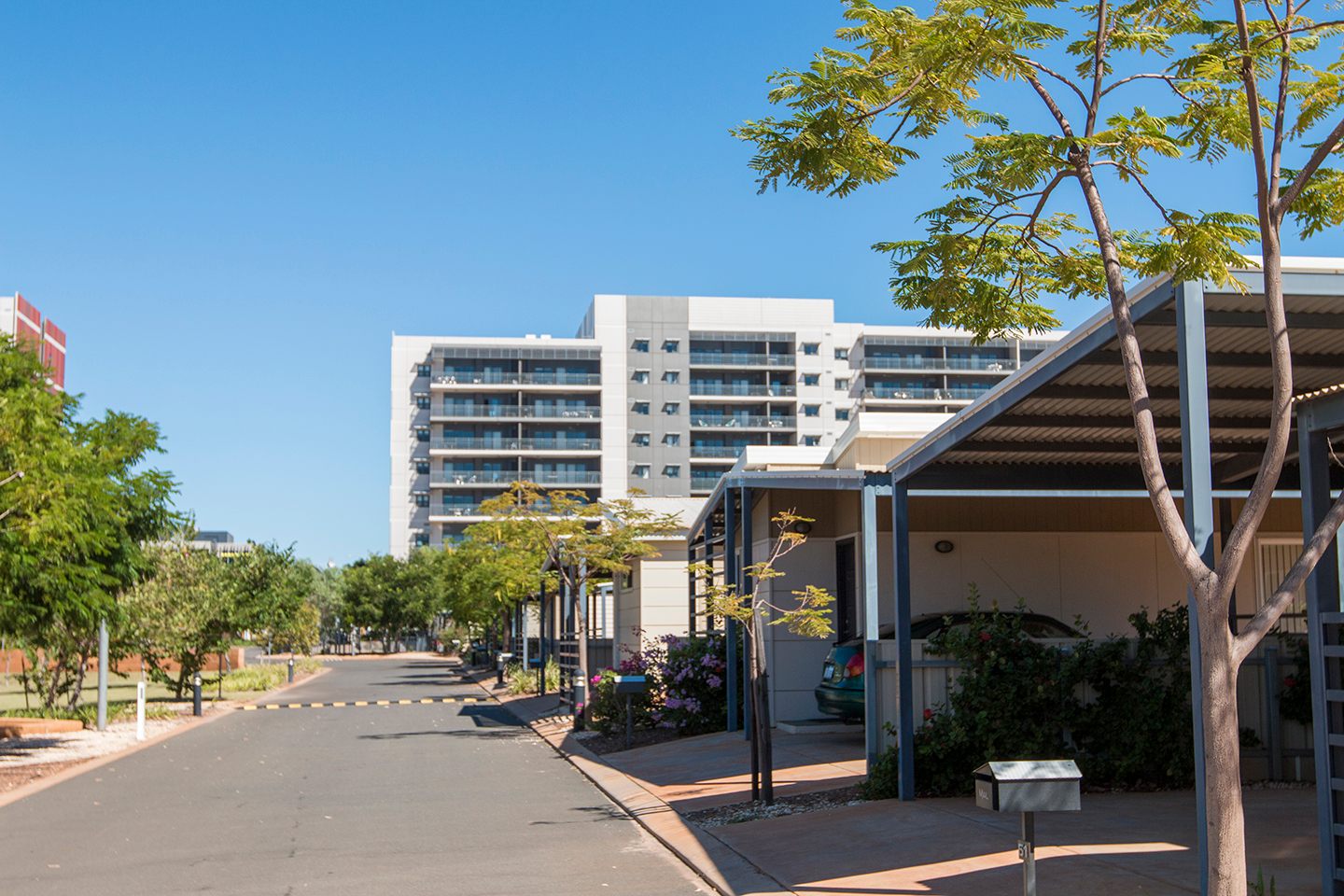The boss of a Pilbara local government has urged policymakers to “get out of the way” and instead fund local councils to solve housing problems themselves.


The boss of a Pilbara local government has slammed lacklustre local housing input by policymakers and urged them to “get out of the way” and instead fund local councils to solve the problem themselves.
City of Karratha chief executive Virginia Miltrup on Wednesday labelled policymakers a “big part of the problem” in exacerbating housing woes as the City presses its case to have housing considered essential infrastructure in the same vein as power and water.
Approved industrial projects have the City expecting population growth of up to 30 per cent in the next five years, resulting in a 2,000-bed residential shortfall by 2030, plus an additional 4,000-bed shortage for construction workforces.
Addressing a large crowd of industry and government leaders at this year’s Pilbara Summit in Karratha, Ms Miltrup said problematic policies included charging stamp duty on insurance premiums, inadequate planning of land releases, and government competing for rentals instead of building houses for its staff.
“Our market doesn't operate according to standard supply and demand drivers but unfortunately we see metro-centric … policy applied by state and federal policymakers that doesn't actually respond in this market,” she said.
“I read media releases (from) ministers very proudly talking about this project being launched and we are going to bring 100 jobs to town… and I and sit there going, where are they going to live?
“The state government in the current state budget put $13 million aside for Karratha which does not even touch the sides of this.”
Ms Miltrup said abolishing stamp duty was a “simple step” the state government could take to attract more private homeowners and builders to the North West.
Other solutions raised to meet building demand included unlocking more development-ready land, of which the state government has a large bank of in Karratha, and entering long-term leases for government regional officer housing should the state refuse to build homes for staff.
Outside of government, Ms Miltrup said wary banks demanding sky-high loan-to-value ratios priced even her own well-paid City directors out of the housing market.
“(The four Pilbara) local governments can actually solve these problems, we can actually build houses, we can build hospitals, we can build step-up, step-down mental health clinics, and Tom Price has been waiting for hospitals for so long, it's in the budget, they just haven't built it,” Ms Miltrup said.
“I am happy to actually build the GROH houses, just give us the funding to do it and then get out of our way.
“All we want is one cent for every dollar of GDP that that we create coming back to the community so that we can have the basic housing and community infrastructure that's needed for this community to survive and thrive.”
Housing was the hottest topic of the two-day annual forum, with several speakers touching on it and floods of questions flowing in from the audience during panel discussions.
Regional Development Minister Don Punch and Pilbara Development Commission chief executive Simon Taylor both urged major project proponents to include staff housing construction as part of their outlays.
Mr Punch went a step further to suggest government should also follow suit.
“In my view a project in the Pilbara needs to have a housing solution attached to it, whether it is government, private industry, whatever the source,” he said.
“There is a new equation in the Pilbara, and in the state, and that is how many houses need to go with that (project).
Govt provbision of housing. To have in mind the options for that.
Mr Punch said housing manufacturing need to undergo revolutionary change while technology and regulation needed to be modernised to meet the region’s housing demands.
The state government since 2017 has focused on social housing and funding headworks rather than directly investing in major workforce accommodation projects.
In 2022 it put $500,000 toward the refurbishment of 30 townhouses in Karratha alongside industry and the City.
The City of Karratha council will vote tonight on a housing policy which this year saw a plea go out to developers to bring whatever solutions they could dream up back to the City.
Ideas put forward from 15 developers to be discussed tonight ranged from requests for the City to act as guarantor to provision of free or discounted land, mostly for high density projects targeted at people on $70,000 to $150,000 per year incomes.
The level of interest by developers suggested it was policy constraints, rather than builder constraints, which were at the centre of housing shortages in the Pilbara, according to Ms Miltrup.
Subscribe here for more award-winning, unbiased and trusted journalism. Your key to local business, news, insights and data.














